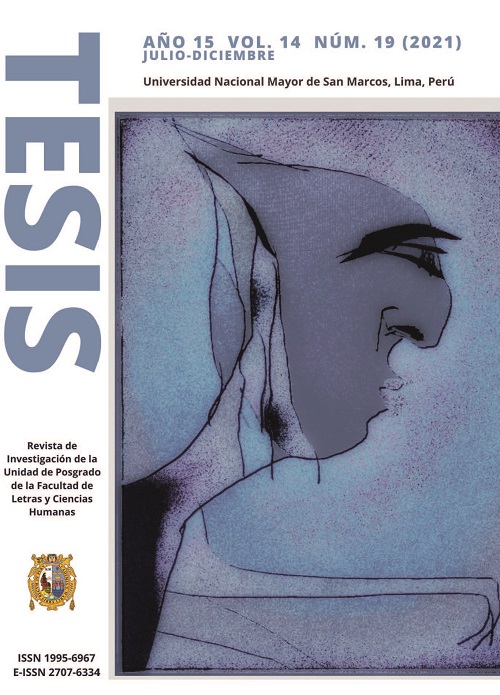El crepúsculo de los ídolos, Nietzsche y la necesidad de educadores
DOI:
https://doi.org/10.15381/tesis.v14i19.20423Palabras clave:
educación, educadores, nihilismo magisterial, pedagogía del eterno retornoResumen
En el prólogo del libro El crepúsculo de los ídolos (1888) Nietzsche escribe: “También este escrito —el título lo delata— es ante todo un respiro, un sitio al sol, una escapada a la ociosidad de un psicólogo” (2016, p. 618). Y más adelante, en otra reflexión expuesta en el libro, afirma: “Se necesita educadores que ellos mismos estén educados” (2016, p. 652). Estas dos citas son el punto de partida para reflexionar acerca de la educación en el Perú desde una perspectiva crítica, acerca de sus problemas y posibilidades. Proponemos que existe una pseudocrisis de la educación, sin educadores, puesto que los docentes de educación básica regular se identifican como profesores o maestros, no como educadores, a pesar de que su título profesional universitario los presenta como licenciados en Educación. Ante esta situación, desarrollamos una reflexión filosófica acerca de esta problemática educativa en el país, basándonos en conceptos claves de filosofía de Friedrich Nietzsche, expuestos en su libro El crepúsculo de los ídolos. Conceptos como nihilismo, educadores, voluntad de poder, amor fati o amor a mi destino, sentido aristocrático, el eterno retorno, etc., son utilizados en nuestro presente ensayo, para analizar esta curiosa situación existente en el magisterio nacional.
Referencias
Astor, D. (2018). Nietzsche. La zozobra del presente. Acantilado.
Brandes, G. (1890). Radicalismo aristocrático. Un ensayo sobre Friedrich Nietzsche. https://repositorio.uam.es/bitstream/handle/10486/217/21984_Radicalismo%20 aristocrático.pdf?sequence=1&isAllowed=y
Deleuze, G. (2005). Nietzsche y la filosofía. Anagrama.
Gómez Rodríguez, J. (2018). Nietzsche parásito de Emerson. ¿Sería posible que habláramos con una boca? Edición independiente.
Han, B.-C. (2012). La sociedad del cansancio. Editorial Herder.
Ley de Reforma Magisterial. (2013). Ley 29944. Reglamento de la Ley, D. S. 004-2013-ED.
Ministerio de Educación del Perú. (2016). Diseño curricular de educación básica. Dirección de imprenta del Ministerio de Educación del Perú.
Nietzsche, F. (2011-2016). Obras completas. Volúmenes I-II-II-IV. Tecnos.
Nietzsche, F. (2007-2008). Fragmentos póstumos. Volúmenes I-II-III-IV. Tecnos.
Nietzsche, F. (2000). La voluntad de poder. Edaf.
Ruiz, D. y Pachano, L. (2006). “El nihilismo en la escuela contemporánea”. Educere, 32, 83-90. https://dialnet.unirioja.es/servlet/articulo?codigo=1984478
Toledo Gutiérrez, C. (2010). Pedagogía del eterno retorno: crítica a una pseudocrisis de la educación, sin educadores. Una visión pedagógica basada en la filosofía de Friedrich Nietzsche. Investigación Educativa, 14(26), 153-159.
Toledo Gutiérrez, C. (2013). Pedagogía del eterno retorno: una visión pedagógica basada en la filosofía de Friedrich Nietzsche. Investigación Educativa, 17(31).
Descargas
Publicado
Número
Sección
Licencia
Derechos de autor 2021 Carlos Toledo Gutierrez

Esta obra está bajo una licencia internacional Creative Commons Atribución 4.0.
LOS AUTORES RETIENEN SUS DERECHOS:
a. Los autores retienen sus derechos de marca y patente, y también sobre cualquier proceso o procedimiento descrito en el artículo.
b. Los autores retienen el derecho de compartir, copiar, distribuir, ejecutar y comunicar públicamente el artículo publicado en la revista Tesis (Lima) (por ejemplo, colocarlo en un repositorio institucional o publicarlo en un libro), con un reconocimiento de su publicación inicial en la revista Tesis (Lima).
c. Los autores retienen el derecho a hacer una posterior publicación de su trabajo, de utilizar el artículo o cualquier parte de aquel (por ejemplo: una compilación de sus trabajos, notas para conferencias, tesis, o para un libro), siempre que indiquen la fuente de publicación (autores del trabajo, revista, volumen, numero y fecha).






